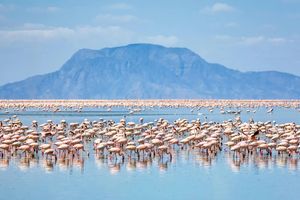Tanzania to develop organic agricultural strategy

What you need to know:
- Tanzania is the fourth country after India, Uganda and Ethiopia with high numbers of organic producers capable of finding lasting solutions to food security and quality in finding a solution to undernourishment and stunting growth in its population.
Dar es Salaam. Tanzania is in the process of developing the national organic agriculture strategy for the operationalisation of policy statements enshrined in the national agriculture policy of 2013.
African Organic Network (AfrONet) Communication Officer Mr Constantine Akitanda was speaking on Tuesday July 19, during a press briefing to a team of experts who are currently developing an organic strategy to protect people from health hazards led by eating contaminated foods.
According to him, Tanzania is the fourth country after India, Uganda and Ethiopia with high numbers of organic producers capable of finding lasting solutions to food security and quality in finding a solution to undernourishment and stunting growth in its population.
“In this case, through the Institutional Innovations for Ecological Organic Agriculture in Africa (IIBA) project supporting this initiative food is our basic need and must be addressed especially the organically produced ones, which answers close to almost Sustainable Development Goals (SDGs).To achieve a better and more sustainable future for all according to the United Nations General Assembly to be achieved by 2030,” he said.
He further stressed that organic agriculture is considered an essential element of African strategy for climate change mitigation and adaptation as well as biodiversity as being implemented in Tanzania.
He further said that Tanzania was chosen alongside Morocco and Uganda due to their different situations in terms of agro-ecological zones, the number of organic farmers and the surface area of converted agricultural land.
Mr Akitanda noted that the IIBA project would catalyze a change in the scale of organic agriculture through the identification of institutional innovations, consolidation of the capacities of the member states and dissemination of the institutional innovations to partner with other countries within the AfrONet.
IIBA Coordinator Mgeta Daudi said prioritising organic agriculture was their concern and requires simultaneous actions through the food systems.
“Beyond production and processing, the project progresses to work on institutional innovations for ecological farming on marketing, guarantee systems and public policies for the betterment of our farmers and raised livelihoods.
According to him, IIBA is championing this noble course of supporting the well-being and healthier Tanzanians and others and creating an enabling environment, where consumers will have the right to choose what to eat and drink, because both conventional and organic agricultural products will be available in the market.


